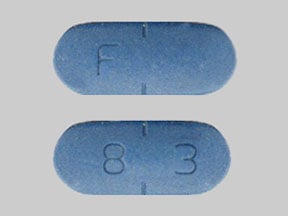
Valacyclovir Coupons & Savings Card – Discount Prices from $17.79
Generic for: Valtrex
Valacyclovir is an antiviral medication used to treat infections caused by certain viruses, such as herpes simplex and varicella zoster. In children, it is effective against cold sores around the mouth and chickenpox. For adults, it treats shingles and cold sores, as well as genital herpes. Valacyclovir helps manage and reduce the frequency of genital herpes outbreaks in those with recurrent infections.
This medication works by halting the growth of these viruses, though it does not eradicate them from the body. It aids in reducing the severity and duration of outbreaks, promoting quicker healing of sores, preventing new sores from developing, and minimizing associated pain and itching. Additionally, it may lessen the duration of pain following the healing of sores.
Valacyclovir is available in tablet form but can be prepared as a suspension by a compounding pharmacy for those who have difficulty swallowing tablets. Common side effects include headache, nausea, and stomach pain. Always consult with a healthcare professional before starting or adjusting any medication regimen.
Our coupons are free to use. Before paying, show the pharmacist your Valacyclovir savings card to get your free discount. Use our filters below to edit the prescription box to match your needs. The Valacyclovir prices will update based on your prescription needs. Above our Valacyclovir coupons, you can change your location to see pharmacy prices and costs in other areas. We're here to help you buy Valacyclovir at the lowest price with our prescription discount card.
My prescription
Edit
1GM, Valacyclovir (30 Tablets)
Select pharmacy

CVS
$26.06
COUPON PRICE
Walmart
$17.79
COUPON PRICE
Walgreens
$21.15
COUPON PRICE
Albertsons
$27.37
COUPON PRICEValacyclovir savings card
Show this card to your pharmacist
Walmart
$17.79
BIN
ID
PCN
GRP
019876
LH49AB9209
CHIPPO
LHX
Powered by
Valacyclovir is an antiviral medication used to treat infections caused by certain viruses, such as herpes simplex and varicella zoster. In children, it is effective against cold sores around the mouth and chickenpox. For adults, it treats shingles and cold sores, as well as genital herpes. Valacyclovir helps manage and reduce the frequency of genital herpes outbreaks in those with recurrent infections.
This medication works by halting the growth of these viruses, though it does not eradicate them from the body. It aids in reducing the severity and duration of outbreaks, promoting quicker healing of sores, preventing new sores from developing, and minimizing associated pain and itching. Additionally, it may lessen the duration of pain following the healing of sores.
Valacyclovir is available in tablet form but can be prepared as a suspension by a compounding pharmacy for those who have difficulty swallowing tablets. Common side effects include headache, nausea, and stomach pain. Always consult with a healthcare professional before starting or adjusting any medication regimen.
Our coupons are free to use. Before paying, show the pharmacist your Valacyclovir savings card to get your free discount. Use our filters below to edit the prescription box to match your needs. The Valacyclovir prices will update based on your prescription needs. Above our Valacyclovir coupons, you can change your location to see pharmacy prices and costs in other areas. We're here to help you buy Valacyclovir at the lowest price with our prescription discount card.
More prescriptions for shingles
coupons from$17.79Save 58%
coupons from$946.36Save 17%
coupons from$5.75Save 85%
coupons from$39.14Save 81%
coupons from$19.10Save 49%
More prescriptions for shingles
Valtrex Save 58%coupons from $17.79
Sitavig Save 17%coupons from $946.36
Acyclovir Save 85%coupons from $5.75
Zovirax Save 81%coupons from $39.14
Famciclovir Save 49%coupons from $19.10
Valacyclovir dosage forms
Use our Valacyclovir 1GM coupon with prices from $17.79 for 30 Tablets. You can also use our Valacyclovir 1GM coupon with prices from $4.54 for 4 Tablets. We have a Valacyclovir 1GM coupon with prices from $9.64 for 14 Tablets. You can use our Valacyclovir 1GM coupon with prices from $12.69 for 20 Tablets.
Dosage Quantity Price from Per unit 1GM 30 Tablets $17.79 $0.59 1GM 4 Tablets $4.54 $1.14 1GM 14 Tablets $9.64 $0.69 1GM 20 Tablets $12.69 $0.63 1GM 21 Tablets $13.20 $0.63 1GM 90 Tablets $49.58 $0.55 500MG 6 Tablets $4.14 $0.69 500MG 10 Tablets $5.23 $0.52 500MG 30 Tablets $10.70 $0.36 500MG 60 Tablets $18.90 $0.32
| Dosage | Quantity | Price from | Per unit |
|---|---|---|---|
| 1GM | 30 Tablets | $17.79 | $0.59 |
| 1GM | 4 Tablets | $4.54 | $1.14 |
| 1GM | 14 Tablets | $9.64 | $0.69 |
| 1GM | 20 Tablets | $12.69 | $0.63 |
| 1GM | 21 Tablets | $13.20 | $0.63 |
| 1GM | 90 Tablets | $49.58 | $0.55 |
| 500MG | 6 Tablets | $4.14 | $0.69 |
| 500MG | 10 Tablets | $5.23 | $0.52 |
| 500MG | 30 Tablets | $10.70 | $0.36 |
| 500MG | 60 Tablets | $18.90 | $0.32 |
| 500MG | 90 Tablets | $33.60 | $0.37 |
| 500MG | 180 Tablets | $51.39 | $0.28 |
